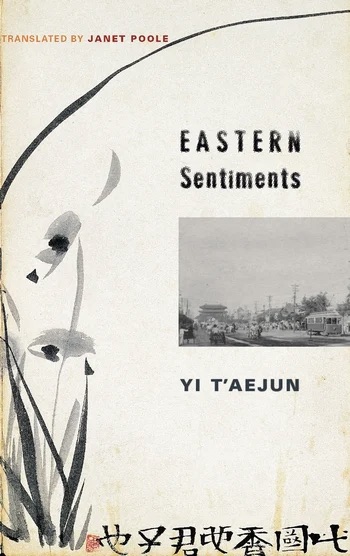The Confucian gentleman scholars of the Choson dynasty (1392-1910) often published short anecdotes exemplifying their values and aesthetic concerns. In modern Seoul one scholar in particular would excel at adapting this style to a contemporary readership: Yi T'aejun.
Yi T'aejun was a prolific and influential writer of colonial Korea and an acknowledged master of the short story and essay. He also wrote numerous novels and was an influential editor of cultural news. Born in northern Korea in 1904, Yi T'aejun settled in Seoul after a restless youth that included several years of study in Japan. In 1946, he moved to Soviet-occupied northern Korea, but by 1956, a purge of southern communists forced him into exile. His subsequent whereabouts cannot be confirmed, though rumors claim Yi returned to Pyongyang, only to be exiled once more. It is believed Yi T'aejun passed away between 1960 and 1980, but his works were not made available until 1988, when South Korean censorship laws concerning authors who had sided with the north were eased.
The essays in this collection reflect Yi's distinct voice and lyrical expression, revealing thoughts on a variety of subjects, from gardens to immigrant villages in Manchuria, from antiques to colonial assimilation, and from fishing to the recovery of Korea's past. Yi laments the passing of tradition with keen sensibility yet, at the same time, celebrates human perseverance in the face of loss and change. Most important, his essays recount the author's attempt to re-experience the past and keep it alive against absorption into the Japanese nation.
Janet Poole faithfully reproduces Yi's complex craft, retaining his idiosyncratic tone and narrative. A brilliant introduction to a remarkable prose stylist, Eastern Sentiments eloquently complicates the historical, political, and aesthetic concerns of Orientalism.
- Contents
- Translator’s Acknowledgments
- Introduction
- Walls
- Water
- Night
- Early Ripening
- Death
- Mountains
- The Flowerbed
- The Banana Plant
- Feet
- Compassion
- Stones
- The Sea
- The City Wall
- Autumn Flowers
- Dawn
- Loneliness
- Narcissus
- History
- For Whom Do We Write?
- The Critic
- Eastern Sentiments
- The Short Story and the Conte
- Titles and Other Matters
- Korea’s Fiction
- The Taste of Fiction
- The Fiction Writer
- Friendship Between Men and Women
- This Thing Called the Popular
- The Taste of The Tale of Ch’unhyang
- Kisaeng and Poetry
- Orchid
- Night Flight
- Books
- Brush and Ink
- Copying
- One Part Words
- Nature and Books
- The Love of a Work
- Other People’s Writing
- After Illness
- The New Bride and an Ink Painting of Bamboo
- Readers’ Letters
- The Year of the Ox
- Trees
- Plum Blossom
- The Classics
- A Poor Drinker
- The Carpenters
- Fishing
- Oriental Painting
- Antiques
- Antiques and Daily Life
- Fiction
- Greetings
- The Old Writings of Two Qing Poets
- Diary from a Seaside Village (Sho_wa 11)
- Record of a Journey to Manchuria

